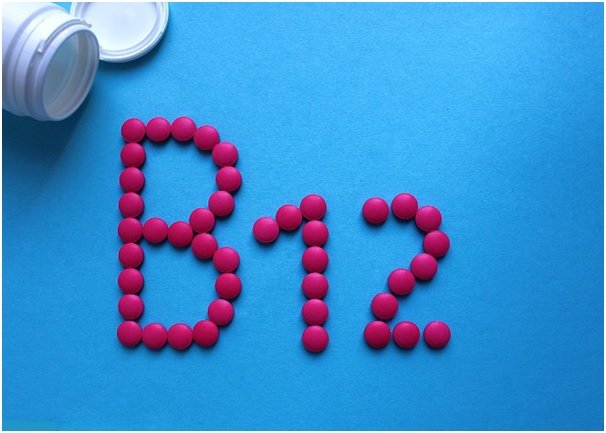Did you know that a staggering number of people around the world are walking around with a hidden deficiency that can zap their energy, cloud their thinking, and even affect their mood?
We’re talking about vitamin B12, a powerhouse nutrient that’s essential for your overall well-being. In India, this issue is particularly pressing. Recent studies suggest that up to 47% of the Indian population may be deficient in vitamin B12. That’s nearly half of us!
Why is this happening, and what can we do about it? Let’s dive into the world of vitamin B12, uncover the reasons behind this widespread deficiency, and explore how vitamin b12 tablets can ensure you’re getting enough of this vital nutrient.
What is Vitamin B12?
Vitamin B12 is a water-soluble vitamin that is vital for several key processes in the body. It is unique among vitamins due to its complex structure and the presence of cobalt, a rare metal.
Vitamin B12 is essential for DNA synthesis, red blood cell formation, and the maintenance of the nervous system. Without adequate levels of Vitamin B12, these critical bodily functions can be compromised.
Benefits of Vitamin B12
Energy Production
One of the primary roles of Vitamin B12 is in the conversion of food into energy. It helps metabolize carbohydrates, fats, and proteins, turning them into glucose, which the body uses for energy. Adequate levels of Vitamin B12 can help combat fatigue and improve overall energy levels, making it a vital nutrient for maintaining vitality.
Brain Health
Vitamin B12 plays a significant role in brain health. It is involved in the production of neurotransmitters, which are chemicals that transmit signals in the brain. Adequate levels of Vitamin B12 are necessary for cognitive function, memory, and concentration. Additionally, it helps prevent brain atrophy, a condition associated with Alzheimer’s disease and other neurodegenerative disorders.
Red Blood Cell Formation
Vitamin B12 is crucial for the production of healthy red blood cells. It works in conjunction with folate to produce DNA and RNA, the building blocks of cells. Without enough Vitamin B12, red blood cells become large and immature, leading to a condition known as megaloblastic anemia. This can cause symptoms such as fatigue, weakness, and pale skin.
Nervous System Support
Vitamin B12 is essential for maintaining the health of the nervous system. It helps produce the myelin sheath, a protective covering that surrounds nerve fibers. Adequate levels of Vitamin B12 are necessary to prevent nerve damage, which can lead to numbness, tingling, and even neurological disorders.
Sources of Vitamin B12
Animal-Based Sources
Vitamin B12 is naturally found in animal products. Some of the best sources include:
- Meat: Beef, especially liver, is rich in Vitamin B12.
- Fish and Shellfish: Salmon, tuna, and clams are excellent sources.
- Dairy Products: Milk, cheese, and yogurt provide a good amount of Vitamin B12.
- Eggs: A versatile and accessible source of this essential vitamin.
Plant-Based and Fortified Sources
For vegetarians and vegans, obtaining adequate Vitamin B12 can be challenging since it is primarily found in animal products. However, there are plant-based and fortified options available:
- Fortified Cereals: Many breakfast cereals are fortified with Vitamin B12.
- Fortified Plant Milks: Soy milk, almond milk, and other plant-based milks are often fortified with Vitamin B12.
- Nutritional Yeast: A popular ingredient in vegan cooking, often fortified with Vitamin B12.
- Supplements: Vegetarians and vegans can take Vitamin B12 supplements to meet their daily requirements.
Miduty, No 1 Nutraceutical Brand in India offers premium supplement that combines methylcobalamin (Methyl B12) and folate, providing a highly bioavailable and effective form of Vitamin B12 and the naturally occurring form of Vitamin B9.
Unlike folic acid, which is the synthetic version of Vitamin B9, folate is directly utilized by the body without the need for conversion, ensuring optimal absorption and efficacy.
Bioavailability and Absorption
The absorption of Vitamin B12 can be influenced by several factors. It requires an intrinsic factor, a protein produced in the stomach, for proper absorption. Conditions that affect stomach acidity, such as gastritis or the use of antacids, can impair Vitamin B12 absorption. To enhance absorption, it is beneficial to consume Vitamin B12-rich foods with meals that include other nutrients, particularly those containing folate and Vitamin B6.
Daily Requirements of Vitamin B12
Recommended Daily Allowances (RDAs)
The daily requirements for Vitamin B12 vary by age and life stage:
- Infants (0-6 months): 0.4 micrograms
- Children (1-8 years): 0.9-1.2 micrograms
- Adolescents (9-18 years): 1.8-2.4 micrograms
- Adults (19+ years): 2.4 micrograms
- Pregnant Women: 2.6 micrograms
- Breastfeeding Women: 2.8 micrograms
Signs of Deficiency
A deficiency in Vitamin B12 can lead to various symptoms, including:
- Fatigue and weakness
- Pale or jaundiced skin
- Shortness of breath and dizziness
- Numbness or tingling in the hands and feet
- Cognitive difficulties, such as memory loss and confusion
Long-term deficiency can result in serious health issues, including megaloblastic anemia and irreversible neurological damage.
Testing and Diagnosis
If you suspect a Vitamin B12 deficiency, it is important to seek medical advice. Blood tests can measure the levels of Vitamin B12 in your body. Regular check-ups are particularly important for at-risk groups, such as the elderly, vegetarians, and vegans.
Conclusion
Vitamin B12 is an essential nutrient that plays a vital role in energy production, brain health, red blood cell formation, and nervous system support. Ensuring adequate intake through a balanced diet or supplements is crucial for maintaining overall health and reverse diseases caused by vitamin B12 deficiency.







